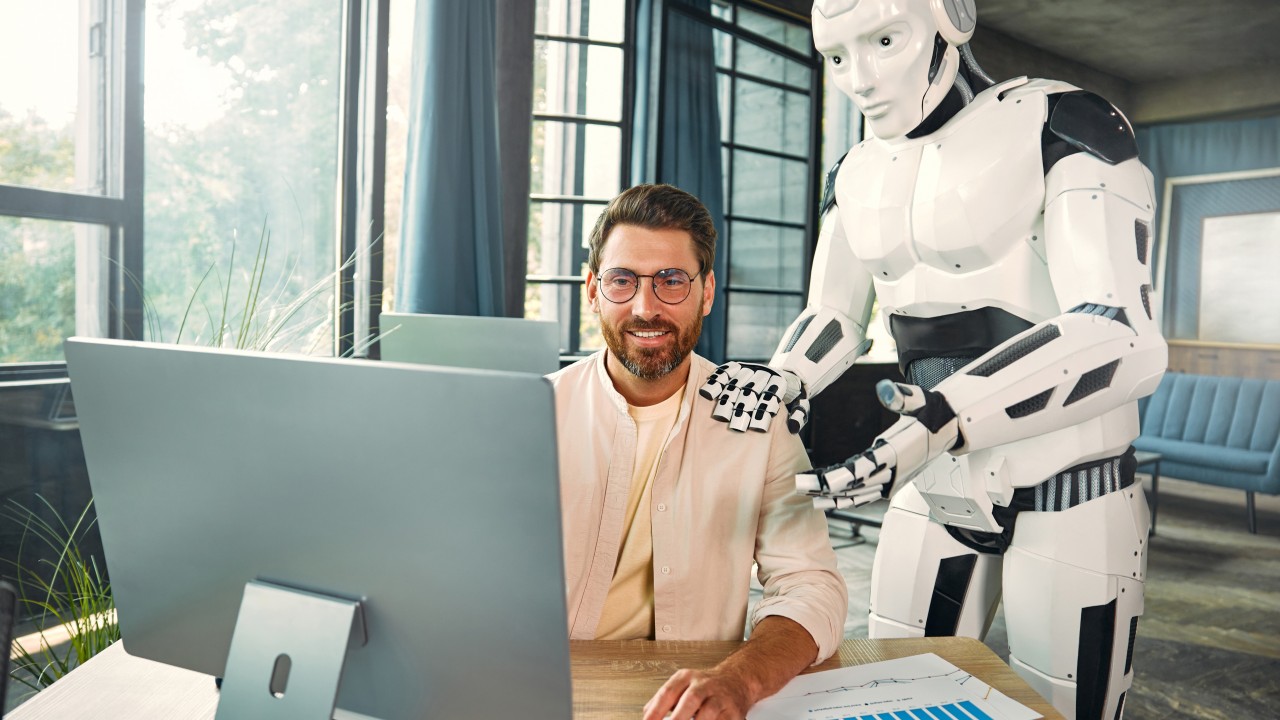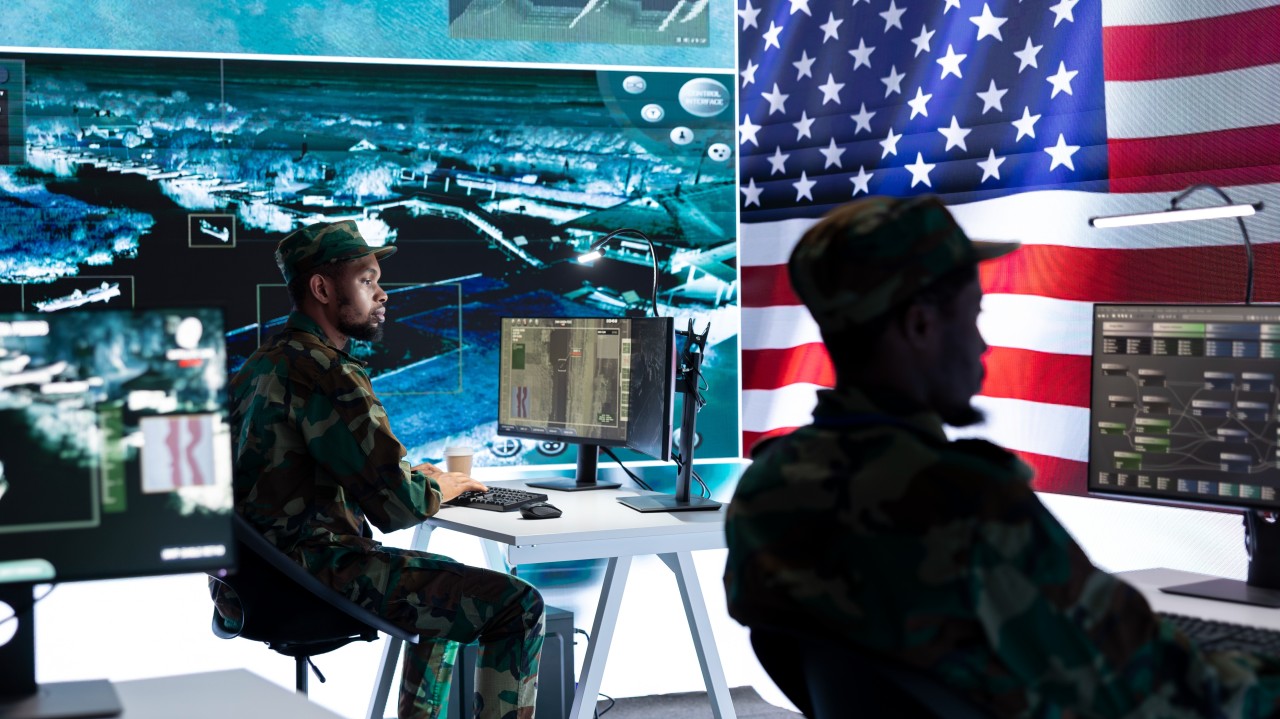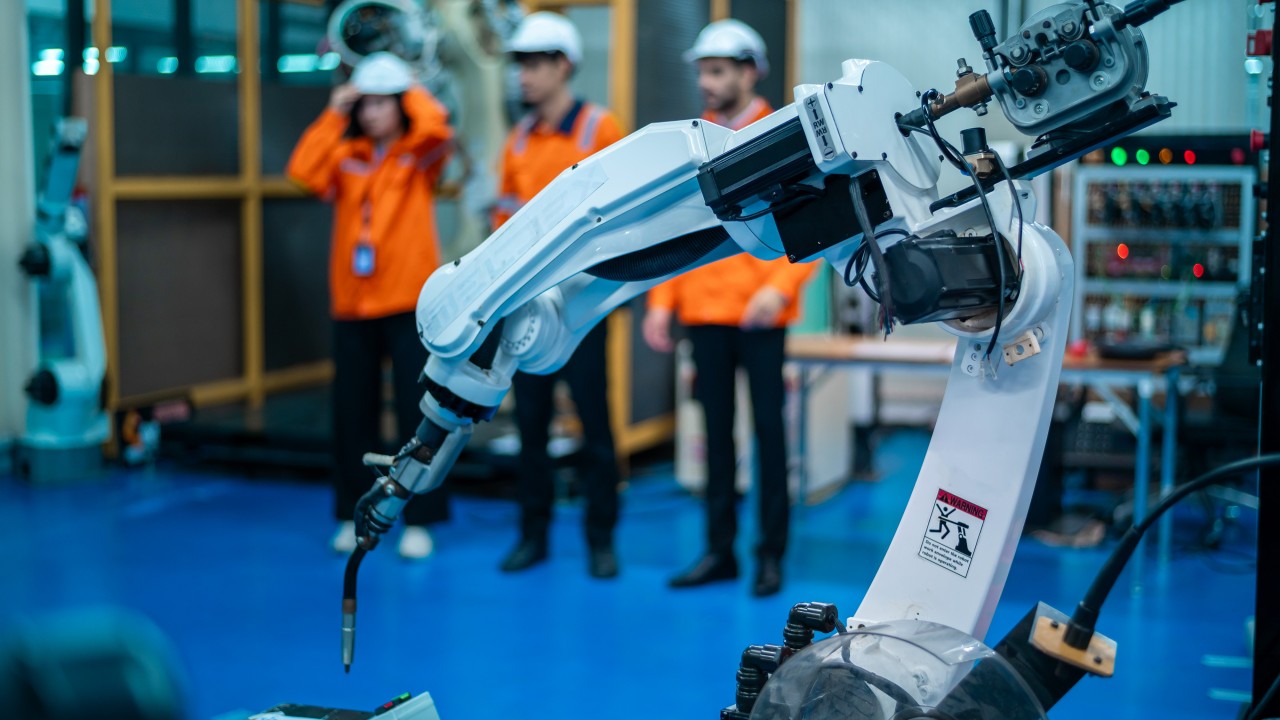
AI as the Ultimate Teacher- Learn Any Subject from A Master
What if you could sit across from Albert Einstein as he unraveled the mysteries of the universe just for you?
Or challenge Garry Kasparov to a game of chess, with him guiding your every move?
Maybe even compose music alongside Beethoven, watching as he transforms your melodies into masterpieces. Just a few years ago, this was pure fantasy- but AI is turning it into reality.
AI is more than automation- it’s a learning revolution.
With AI-powered mentors, you can master any skill, guided by history’s greatest minds. These digital teachers adapt to you, offering hands-on practice in art, design, music, and more. The classroom of the future isn’t a place- it’s wherever you are, with AI as your guide.
The potential of this is that humans will solve more problems, invent more groundbreaking technologies and cures and create more meaningful creations for the benefit of all.
Learning from AI Masters in Different Fields
Traditional education is limited by time and resources, while online courses often lack real-world interaction. AI is changing this by simulating the teaching styles and expertise of historical and modern masters, creating a deeply immersive learning experience.
By analyzing vast datasets- books, lectures, and research- AI-powered tutors can think, explain, and adapt like the greatest minds.
Paired with specialized software – possibly made specifically for training, learners can gain hands-on experience, just like an apprenticeship.
From composing symphonies to unraveling the mysteries of the universe, AI is not just a tool- it’s a mentor that refines human creativity, deepens understanding, and accelerates mastery across all fields.

Compose Like Beethoven or Score Like Hans Zimmer
Imagine sitting in a studio, struggling to compose the perfect melody, when Beethoven himself appears beside you, guiding your hands across the keys, or Hans Zimmer walks you through the intricate layers of a cinematic score.
With AI-powered mentors, this fantasy is no longer beyond reach. AI can analyze thousands of compositions, breaking down complex harmonies and structures to offer personalized insights that elevate musical creation. Unlike traditional learning methods that rely on imitation, AI encourages musicians to experiment, blend styles, and push creative boundaries.
It doesn’t just tell you what works- it explains whyit works, helping artists develop a deeper emotional connection to their compositions.
In an era where creativity is often restrained by technical limitations, AI provides an infinite well of inspiration, allowing musicians to craft original masterpieces with the genius of the past embedded in every note.

Checkmate! Learn Chess with Kasparov; Carlsen
What if every time you made a move on the chessboard, Garry Kasparov paused the game to explain the consequences, or Magnus Carlsen revealed the reasoning behind his legendary intuition?
AI is transforming chess education by providing real-time coaching tailored to each player’s strengths and weaknesses. Unlike human coaches who might focus on generalized strategies, AI studies an individual’s playing style, identifies patterns, and offers personalized guidance to refine decision-making.
More than just a teacher, AI acts as an untiring sparring partner, challenging players at just the right level to encourage growth. It doesn’t just improve technical skills; it fosters strategic thinking, patience, and foresight- the very qualities that define grandmasters.
By bridging the gap between amateur enthusiasts and world-class expertise, AI could usher in a generation of chess players more skilled than any before.
Instead of only training AI to play against humans we as humans should be training AI to teach humans how to master the game.

Crack the Universe’s Code with Einstein
Physics is often perceived as an abstract and complex subject, filled with equations that seem detached from reality. But what if Albert Einstein himself could guide you through the mysteries of the cosmos? AI is making this possible by transforming physics education into an interactive, experiential journey. Instead of reading about relativity, students can see how space-time bends under the force of gravity or feelthe effects of time dilation through immersive simulations.
AI adapts explanations based on a learner’s comprehension, ensuring that no one is left struggling with concepts beyond their grasp. By replicating Einstein’s thought experiments and modeling real-world physics, AI makes the subject intuitive and engaging.
This shift from memorization to exploration could cultivate a new era of scientists who don’t just understand equations but can visualize and apply them to uncover the universe’s deepest secrets.
Engineer the Future with Da Vinci

Leonardo da Vinci sketched flying machines centuries before they took flight, proving that visionary thinking is the foundation of innovation. What if AI could let us think like him, guiding our hands as we design the next great technological breakthroughs? AI-powered engineering tools can analyze blueprints, test prototypes in virtual simulations, and predict structural weaknesses before they become real-world problems. Unlike conventional methods that rely on trial and error, AI accelerates the creative process, offering real-time feedback that refines ideas into functional solutions.
More than just a problem-solving tool, AI inspires innovation by suggesting improvements that even experienced engineers might overlook. It allows students, hobbyists, and professionals alike to push the boundaries of what’s possible, creating a future where human ingenuity is amplified rather than replaced.
With AI as a co-creator, we may witness an unprecedented era of technological advancement, where anyone with an idea can bring it to life with the precision of a master inventor.
Debating with Plato Through AI
Imagine engaging in a deep philosophical dialogue with Plato himself, exploring justice, virtue, and knowledge through interactive AI. Instead of memorizing his teachings, AI-powered conversations bring his dialogues to life, challenging you with Socratic questioning and prompting critical thinking. Whether discussing The Republic or analyzing the theory of forms, AI transforms Plato’s wisdom into a dynamic, personalized learning experience-bridging ancient philosophy with modern inquiry.
As AI improves, could it help society develop sharper critical thinkers, deeper ethical understanding, and a more engaged global discourse?
Could it become the ultimate philosophical companion, making the pursuit of wisdom more accessible and compelling than ever before?

Paint Masterpieces with Van Gogh’s Brush
Art is more than technique- it’s about perspective, emotion, and storytelling. What if Van Gogh could guide your brushstrokes, not just teaching you how to paint but helping you seethe world as he did? AI is becoming an artist’s closest collaborator, recognizing individual styles and offering personalized feedback to refine their craft. Rather than replacing human creativity, AI acts as an infinite well of inspiration, encouraging artists to merge classical techniques with modern innovation.
Beginners can gain confidence through guided lessons, while experienced painters can push their boundaries, experimenting with new textures, colors, and styles. With AI as a creative partner, artists are no longer limited by traditional constraints. The fusion of human imagination and AI’s analytical power could lead to a renaissance of artistic expression, where every creator has the tools and knowledge to bring their most ambitious ideas to life.

The Future of AI Learning- What’s Next?
While AI already enables us to learn from historical and modern masters, the future promises even greater innovations. Imagine an AI-powered platform where users don’t just mimic Beethoven’s symphonies but co-compose with him in real time, generating harmonies that adapt to their unique style. Or a digital chess tutor that not only analyzes your moves like Kasparov but also adjusts its teaching approach based on your emotions, learning pace, and play style.
In the coming years, AI could power:
Personalized AI Mentors – Learn Directly from the Masters: Future AI tutors won’t just teach in generic styles- they will integrate the wisdom of multiple experts, creating personalized learning experiences.
Engineering & Innovation: Imagine an AI mentor that teaches mechanical engineering by blending Leonardo da Vinci’s visionary sketches with Elon Musk’s approach to rapid prototyping. Learners could explore AI-generated designs that bridge historical ingenuity with modern technology.
Law & Ethics: Students of law could engage in debates with an AI that integrates the logic of Socrates, the legal reasoning of Ruth Bader Ginsburg, and the negotiation strategies of Nelson Mandela. AI could challenge perspectives, refining critical thinking and decision-making.
Space Exploration: Future astronauts and scientists could train with an AI mentor that synthesizes the problem-solving techniques of Galileo, Carl Sagan, and Katherine Johnson, helping them approach physics and space travel from multiple historical viewpoints.
Haptic AI Learning in Virtual Reality (VR) and Augmented Reality (AR): AI-driven VR and AR simulations will allow students to experience subjects in entirely new ways. Learners could feel the weight of a brushstroke in a painting simulation, experience the tension of a chess clock in a virtual match, or walk through historical events as if they were truly there.
Medicine & Surgery: AI-powered VR surgery simulators will allow medical students to practice complex procedures under the guidance of virtual mentors modeled after Hippocrates, Dr. Christiaan Barnard, or Dr. Devi Shetty. AI will analyze hand movements and technique, providing instant feedback to refine precision.
History & Archaeology: Instead of just reading about ancient civilizations, learners could walk through an AI-generated virtual Roman Senate, interact with Julius Caesar, or reconstruct historical ruins using insights from Howard Carter, the discoverer of Tutankhamun’s tomb.
Automotive Design & Innovation: Engineering students could design cars in VR, assisted by an AI modeled after Henry Ford and Tesla’s latest AI-driven automation principles, allowing them to experience automotive evolution firsthand.
AI-Generated Collaborations- Co-Creation with History’s Greatest Minds: AI won’t just teach; it will collaborate with learners, refining and completing projects based on historical expertise.
Architecture & Urban Planning:Architects could design futuristic cities with AI assistance, incorporating principles from Frank Lloyd Wright’s organic designs, Le Corbusier’s modernist vision, and ancient Roman engineering to develop sustainable structures.
Literature & Storytelling: Aspiring authors could receive AI-powered editing and storytelling suggestions inspired by the styles of Jane Austen, George Orwell, or Haruki Murakami, ensuring their narratives are both compelling and structurally sound.
Industrial Design & Manufacturing: Product designers could upload prototypes to an AI system that suggests improvements based on methodologies from James Dyson (vacuum innovation), Elon Musk (hyper-efficiency manufacturing), and Steve Jobs (design simplicity).
Neural Interface Learning- Direct AI Integration with the Brain: Brain-computer interfaces (BCIs) are advancing rapidly, and AI-powered BCIs could soon detect learning gaps and directly enhance cognitive understanding. Imagine an AI that tracks brain activity and adapts teaching methods in real time, ensuring mastery of complex subjects at an accelerated rate.
Cognitive Science & Learning Acceleration: AI-powered brain interfaces could detect when a student struggles with quantum physics, adjust teaching methods in real time, and stimulate memory recall using strategies modeled after Einstein’s thought experiments.
Medical Diagnosis & Patient Care: Future doctors could train using BCIs that enhance pattern recognition for diagnosing diseases, using insights from Dr. Paul Farmer’s public health strategies and Dr. Florence Nightingale’s pioneering nursing techniques.
Energy & Sustainability: Scientists working on renewable energy solutions could use AI-driven neural learning to simulate Nikola Tesla’s electrical innovations and modern clean energy breakthroughs, accelerating the development of sustainable technologies.
The AI classroom of tomorrow won’t just teach- it will create alongside you.

A Future Shaped by AI and Human Genius
AI is not here to replace human creativity- it’s here to amplify it. By learning from the greatest minds in history, we can refine our skills, push the boundaries of what’s possible, and create with greater depth and precision than ever before. Whether in music, chess, science, engineering, philosophy, or art, AI is making mastery more accessible, immersive, and personalized. The future of learning isn’t about memorization; it’s about interaction, exploration, and collaboration with the legends of the past.
So, what will you learn, and who will you learn it from? With AI, the choice- and the masterpiece- is yours.
- Want to design a futuristic city? AI will guide you using insights from the greatest architects.
- Want to master medicine? AI will simulate surgeries with techniques from history’s best doctors.
- Want to craft persuasive speeches? AI will help you learn from legendary speakers and leaders.
With AI as our mentor, we are not just students-we are co-creators of a world where innovation, artistry, and knowledge reach unprecedented heights.
The question is no longer “What can we learn?” but “Who do we want to learn from?” AI makes that choice limitless.
Interested in integrating AI and automation into your organization? Contact GAME PILL or DM to discuss how AI-powered learning can revolutionize skill development, creativity, and innovation in your industry.





